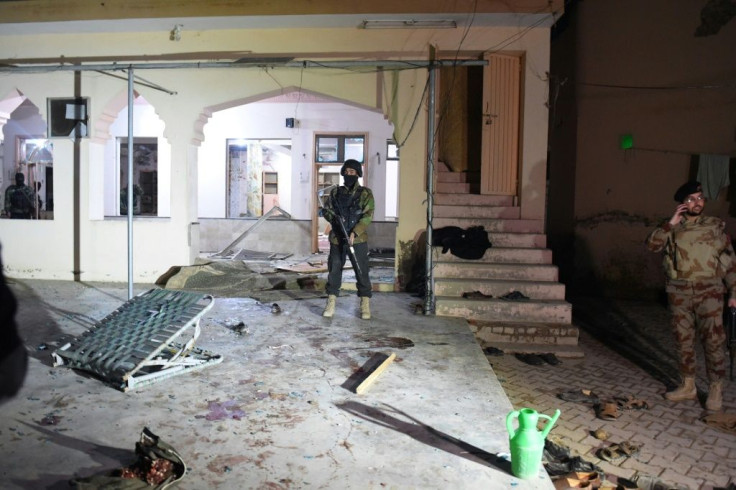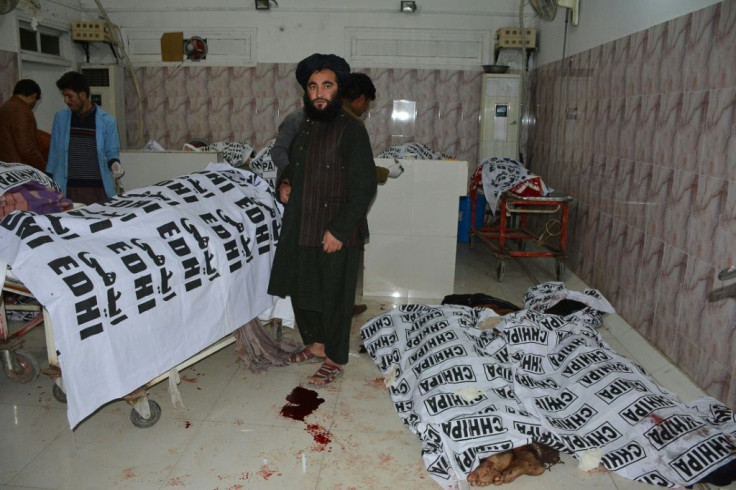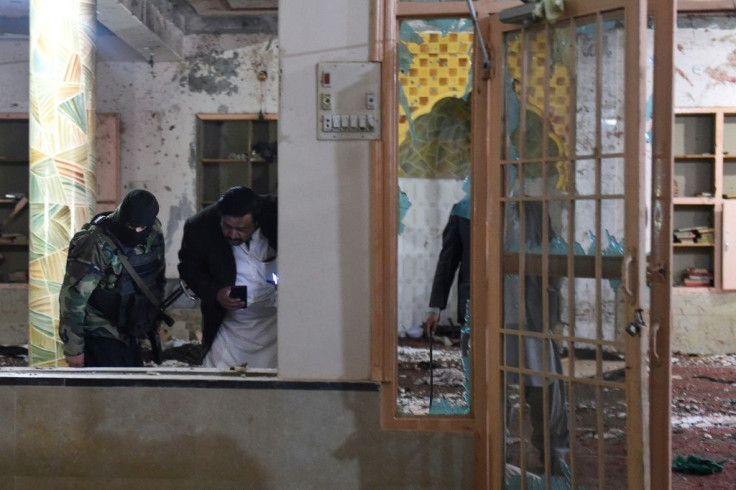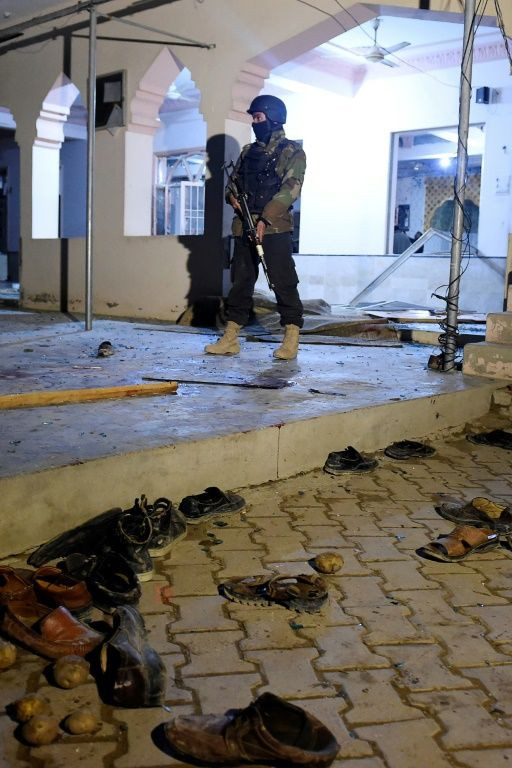At Least 15 Dead In Pakistan Mosque Suicide Bombing

A suicide bomber targeted a mosque in southwestern Pakistan during evening prayers Friday, killing at least 15 people and wounding 19 others, officials said.
The blast took place in a satellite town of Quetta, the province's main city. Debris and shattered glass littered the scene.
Fida Mohammad, who was attending evening prayers, said about 60 people were present at the time of the attack on the mosque, which is located in a densely populated area.
The explosion ripped through the front row of worshippers seconds after the prayer began, he told AFP.
"It was a powerful blast, people were screaming and running here and there -- many people were injured because of the stampede," Mohammad said.

Mohammad Waseem, a doctor at Quetta's Sandeman hospital, confirmed that 15 victims had died.
The police chief of Balochistan province, Mohsin Hassan Butt, also confirmed the death toll, telling AFP: "Nineteen people are still taking medical treatment, the condition of three to four is critical."

A police officer was among the dead, he added.
Provincial home minister Zia Ullah Langu told reporters that investigations by bomb disposal officers indicated that a suicide bomber carried out the attack.
A spokesman for the provincial government, Liaqat Shahwani, confirmed a suicide bomber was to blame.

The Islamic State claimed responsibility for the attack, according to the SITE intelligence group.
A Pakistani military spokesman said on Twitter that paramilitary personnel has reached the mosque and cordoned off the area.
"A joint search operation with police is in progress, injured being evacuated to hospitals," said the spokesman, Asif Ghafoor.
The attack comes two days after a motorcycle bomb targeting a paramilitary force vehicle killed two people and wounded 14 others at a busy market in Quetta.
Balochistan is Pakistan's largest and poorest province, bordering Afghanistan and Iran.
It is rife with Islamist, separatist and sectarian insurgencies and attacks are frequent, even as the number of violent incidents has significantly dropped elsewhere in Pakistan.
Militants still retain the ability to carry out attacks, including on major urban centres and tightly-guarded targets, and analysts have long warned that Pakistan has not yet tackled the root causes of extremism.
Balochistan is key to the China-Pakistan Economic Corridor (CPEC), part of Beijing's Belt and Road initiative.
CPEC seeks to connect China's restive western Xinjiang region with the Pakistani port of Gwadar, giving the world's second-largest economy access to the Arabian Sea.
© Copyright AFP 2024. All rights reserved.




















